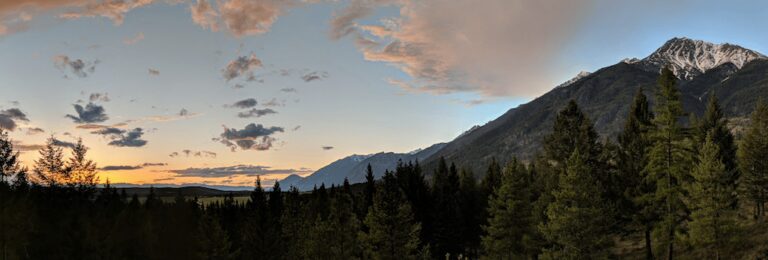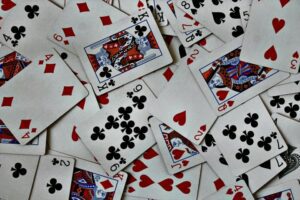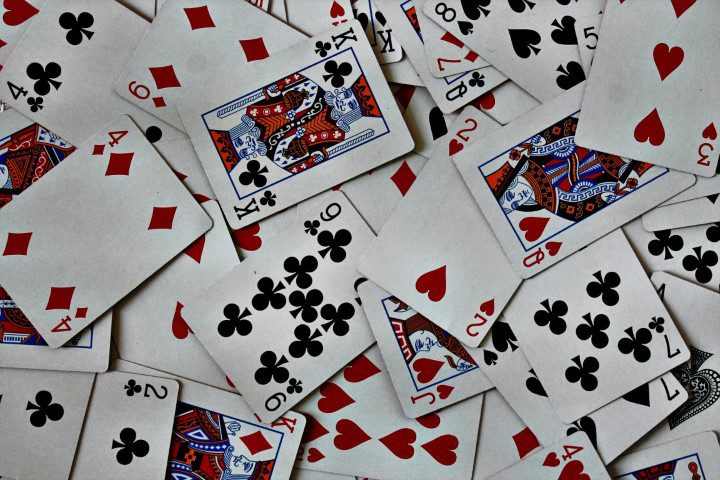The Paramis: How to Gain Energy by Playing Cards
The six paramis, or paramitas, are one of the many “Buddhist lists,” such as the fundamental Four Noble Truths and Eightfold Noble Path. The Paramis seem simple, something else you can print out and stick on your fridge. Reading them once a day will certainly improve your week, yet their power comes when we truly practice them, using them as a guide in the moment, as often as we can. The Paramis lead us to a greater sense of freedom and eventually, awakening.
The six Paramis–generosity, virtue, patience, effort, concentration and wisdom–take seconds to read and a lifetime or more to master. So, this blog offers an introduction to them, or perhaps a reminder that they are there to be practiced, contemplated, and shared.
Pārami: Practices for Freedom 2022
January 14th-16th, 2022. Online or in person, join us for a weekend focused on the Paramis.

A Reflection on Energy-by Richard Nathaniel
The first Parami, generosity, is the foundation of spiritual life. It directly addresses the root cause of suffering, which is clinging or attachment. The other five build on generosity.
After working on the first three paramis, we feel expansive with generosity, level-headed with virtue or coolness, and persistent with patience. How do we fine tune these qualities? This is where energy, the fourth parami, becomes a particular point of focus for maintaining our spiritual practice. We could ask the question, is the effort we have to put towards awakening both sustainable and effective?
As we learned from physics class, energy cannot be created or destroyed, which implies that it is limited, and so it matters how we spend ours. Of course, there are different constraints on our energy, one of them being time; we only live for so long and get just 24 hours in a day, so how do we use our energy wisely?
What follows is a reflection on what I’ve been taught and what I’ve learned about energy.
The Downside of Seeking Perfection
I like to focus on the details and aim for perfection. This makes me relatively slow. One teaching I have been getting is to do things faster-and this is not as simple a teaching as it seems.
I am starting to see that when I slow down so much, it dampens my energy (rather than preserving it, as you might think). It’s useful to know this, because the more responsibility I have here at Clear Sky Meditation Center, the less time I can reasonably spend on each thing. By moving a little faster, I actually gain energy, and have better focus and concentration in each moment. And the more wisely I use the time and energy I have.
We also use up a lot of energy in making choices. At the extremes of indecision, we freeze or procrastinate endlessly and can’t decide at all. As a Libra, I like to weigh my decisions. Doing this can sometimes take more energy than is really needed for simple decisions. Knowing this, I try to be more comfortable with making faster decisions and less concerned about making mistakes. In some cases, it’s better to make a mistake than use up a bunch of energy deciding, or even not choose at all. The nature of life is imperfect and messy, so at the very least, we should choose the messes we want to be in!
Learning Cards to Awaken!

A further drain on our energy is what we think we’re not good at, otherwise known as our weaknesses. We all have strengths and weaknesses. While we can leverage our strengths in our favor, our weaknesses tend to be sources of energy drain, because we avoid things or get stuck in negative emotions rather than just try to learn. At Clear Sky, everyone is challenged to work on their weaknesses for this reason; it avoids future unnecessary suffering and frees up more energy for awakening. It’s challenging to face our weaknesses because we all feel naturally uncomfortable and vulnerable there. In the long run, though, we save energy because we don’t get tripped up there anymore and we gain confidence from overcoming something we thought was a weak area.
One weakness of mine is the card game, bridge. Every Friday night, we have the chance to join a bridge game with Qapel, one of our founding teachers. In bridge, you work with a partner, but you can’t see their cards or show them yours. There is a series of jargon-filled bidding to learn, in a key part of the game before each hand even starts. I find this game challenging because we have to keep track of multiple things. There are also a lot of rules, and many instances where you have to recognize what happened and adjust. This is why Qapel–and his teacher Namgyal Rinpoche before him–loves to play it. It’s a great exercise in communication, understanding context, logical thinking, and mental agility. Some people love to learn it while they’re here, and others, like me, cringe at the thought.
For the last few years, I’ve struggled to learn, even though I went every week; I still couldn’t seem to hold the cards properly or remember the basic rules. Knowing my weakness in this area, I would be nervous every time and so the cycle would continue. Does that resonate at all?
A Choice that Matters
One day, Qapel said that my ability–or willingness–to learn bridge is directly related to my spiritual progress, my awakening. In other words, I won’t awaken unless I choose to push through blocks like this, where I limit myself. This triggered an internal decision in me, to make a serious effort to learn bridge.
I found some software to practice with–and it was painful to work through, even with beginner level exercises. Yet, I persisted and also got extra coaching from the Sangha. A few weeks later, I came to bridge night and played a few rounds. Qapel commented how my confidence was up and that I didn’t freeze up while playing like I did before. And I’ve continued to improve.
By putting energy into learning bridge, rather than deciding it didn’t matter–because it felt bad to keep trying–there has been a shift in my abilities and confidence elsewhere. I’ve freed up energy that was blocked, for whatever reason.
I especially notice this shift when I need to communicate and coordinate tasks with different people. I’m better able to plan, adapt, and hold multiple pieces of information, and now use my energy more effectively. So tackling bridge was the key to unlocking some kind of resistance to complexity or messiness. The challenge is still there, but I’m more comfortable engaging with it, and playing bridge.
Where do you have blocked energy that you could free up by tackling something you “can’t do” or dislike?


